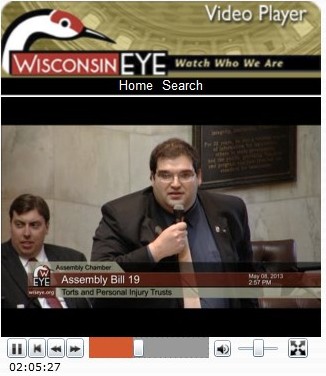The Wisconsin Assembly today passed three bills, AB 19, AB 27 and AB 139, that will improve Wisconsin’s litigation climate, making Wisconsin a more attractive place to do business.
Video of the floor debate is available from WisconsinEye. Continue reading “Assembly Advances Civil Justice Legislation”

